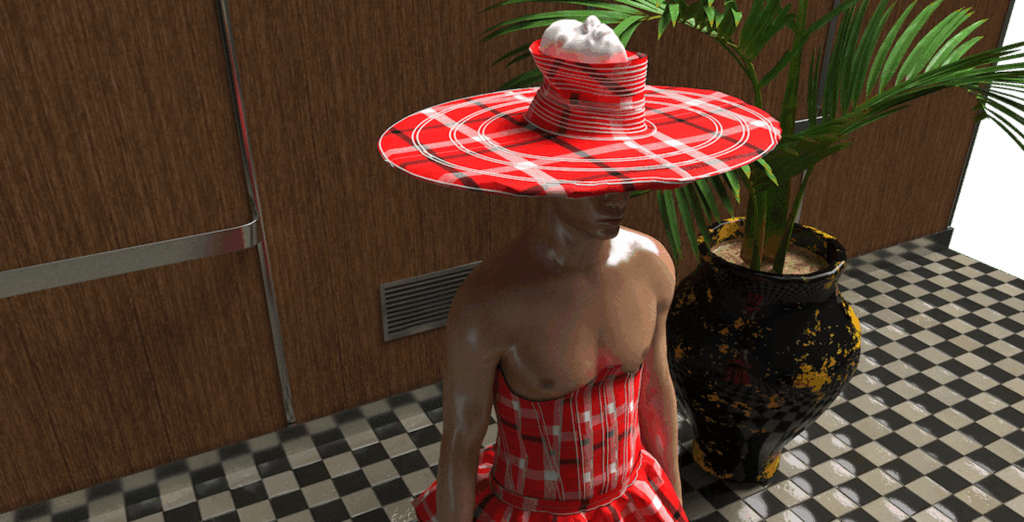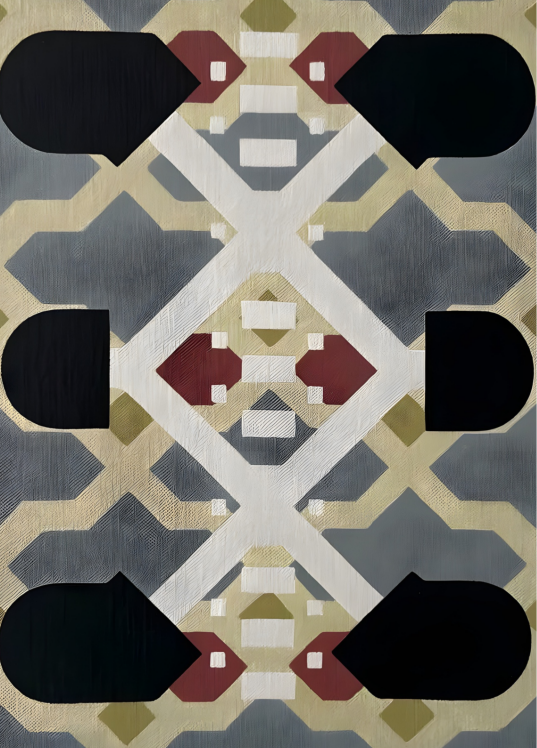Jelle Ris is schooled as an autonomous artist, primary school teacher, and education scientist. Currently, Jelle Ris is associated with several academic institutions in the Netherlands, including NIVOZ, the Thomas More University of Applied Sciences, and the Willem de Kooning Academy. At the pabo, he works as a teacher trainer of visual arts, while at the WDKA, he teaches pedagogy and didactics to trainee teachers. Additionally, he works as an investigator and writer at NIVOZ, where he conducts research and writes on topics related to education.
Jelle Ris's diverse education and experience in various domains of education have made him a well-rounded and accomplished educator, researcher, and author. In this interview, he talks about his educational approach, relationship to art and goals as a tutor.

What is your branch / subject of knowledge?
"My subject of knowledge is personal formation/pedagogy. Personal formation is about stimulating a person's desire to become an autonomous thinking and acting person. It is an intrinsic story, and you cannot determine how someone should develop. Nowadays, due to secularization, there are no clear guidelines for development and education. I want to ignite the spark of development by providing interesting topics and perspectives, organizing challenging activities, and offering time and space for research and thinking. In the process, I want to support and nourish my students as much as possible so they can sustain their motivation. I interrupt them (by presenting new topics), slow them down (through practice and reflection), but I do not tell them what to do or how to do it. To enable them to sustain their motivation, I provide them with guidance and support through supportive teaching and mentoring."
Why did you start working at wdka?
"I started working at WdKA (Willem de Kooning Academy) in November 2021. I had actually applied for the same position in 2020, and in 2021, there was another job opening. I studied autonomous fine art at WdKA from 2001 to 2005, and later on, I moved into education. I had the opportunity to interview three people from DBKV along with two colleagues from NIVOZ for the book we wrote, which helped me become more involved with the academy. My name stayed in their minds and they remembered me when I applied again.
I work here part-time, with 0.35 at WdKA, where I teach, serve on the curriculum of DBKV and assessment committee of the WdKA, and supervise internships. I also work part-time at Pabo (0.3) and NIVOZ (0.2). The jobs complement each other very well, with pedagogy being the common thread. I take good practices I see at Pabo and apply them at WdKA and vice versa. Additionally, I use my experiences from both positions in my writing."
What do you love about teaching?
"Teaching is something that enables new possibilities. It involves nurturing a new generation and showing them what the world has to offer, giving them the opportunity to shape the future in the way they envision it. This is done from a place of love for the world and what is good in it, with love towards the past and present. I aim to ignite this love within my students, inspiring them to care for the world and take responsibility for it.Especially in these times of conflict and decay, it is important to make more room for pedagogy and love for the world in education. I love teaching from a place of idealism, with the belief that education can make a difference in the world."
What defines you as a tutor?
"I've always known that I can be an example for others, even in school. Despite my difficult childhood experiences, I have always been able to handle them well, and I want to help others do the same. I aim to inspire others, and I do so by being vulnerable and open, which disarms others and allows for connections to be made.
At the beginning of the year, I asked the full-time first-year students in the teacher training program how I should open the class. They wanted to know more about me personally, so I prepared a speech in which I was very honest about my own development. I emphasized that I am here to serve them, and I strive to put myself in a position of service. My students often feel comfortable and safe around me, and I think that's because of my openness. Being able to look at yourself honestly and be willing to learn and grow, even when faced with challenges, is important. When you are willing to be open and learn, you become a more pleasant person to be around. Instead of blaming others, you are able to reflect on your own actions."
I also enjoy using my own artwork in my lessons, and I try to make myself approachable and personal. For example, I sometimes bring in my drawings from when I was going through a burnout. I heard from my students that they found it very inspiring. Being vulnerable comes naturally to me, and I believe that getting rid of shame is important. When I was a Fine Arts student, I lived through an alter ego, complete with lightning bolt mullet, gold blouses, and tracksuits. I would present my paintings half-naked, and I would demonstrate the relativity of identity and the importance of shedding shame in order to be a true artist."
As a good teacher, it's important to have a certain idea about the world and people, and to act from that philosophy. I enjoy challenging my students by throwing them into the deep end, such as when I incorporated a performance into one of my lessons."
How would you describe your relationship with art?
"In the past, I thought that I could be an inspiration to others by creating autobiographical art with vulnerability. However, I could also be very rough. I balanced between two extremes - the vulnerable me who thinks and worries, and the rough me who follows intuition and acts wild. I remember paintings that I destroyed with a baseball during a review.
My art was about telling my life story. It was about self-formation and socialization. What is imposed on us by society, and how can we relate to it? I was rebellious and recalcitrant, looking for new and open ways to exist. I wanted to throw new things into the world. Back then, it was on an intuitive level, but now I am more pedagogically trained. I am still doing the same thing, but with more knowledge and understanding.
Now that I am pedagogically trained, I see that my art had pedagogical value even then. I try to bring my own artistic practice into the classroom. For example, I use sweaters to support my lessons and start conversations. The one I'm wearing now says "(Re)act & exist." You exist in the world only by doing something. I was in a relationship for years in which I lost myself. When it was over, I reflected on it and came to the conclusion that I was no longer myself. By expressing yourself, you owe it to yourself and others to let yourself be known. You exist in dialogue with others. You should not hold back, but show who you are.
The back of the shirt I'm wearing now says "victima nulla," which means "never a victim." You can always do something in situations to not be a victim. It's a controversial and challenging idea, but I firmly believe in personal agency, self-control, and responsibility. I can't control everything, but I can relate to what happens. Being angry at the world is pointless. You should try to do something yourself and hold yourself accountable. No matter how much of a victim you seem objectively, you can always try to do something.
The sweaters support the philosophy from which I act, teach, and live. Showing yourself, wanting to be a person, willingness, leading the young generation, giving space to grow, raising but also letting go and leaving again."
What is your goal as a tutor?
"As a tutor, my goal is to spark curiosity in my students and encourage them to explore new ideas and perspectives. When someone becomes interested in and starts with self-directed learning by actively seeking out new information, it brings me great joy. I believe that education can cultivate a love for the world, and when I see that love growing in my students, I feel that my task is complete and I am ready to move on. While saying goodbye to my students can sometimes be bittersweet, as I have grown to care deeply for them, it is also a beautiful moment. I am committed to providing my students with a lot of care and support, and seeing them flourish is incredibly rewarding."
What is your source of inspiration?
"My sources of inspiration are mainly philosophers, such as Gert Biesta and Jan Masschelein. They have been a great inspiration for me because they have shown me that what I was doing intuitively as an artist (being recalcitrant), is something that has been written about by entire schools of thought. This schools of thought, called critical theory, emerged in response to the rationalism of Kant's enlightenment, that suggested that everything is logical and can be made. Due to the first world war ‘the rational human’obviously failed humanity. The critical theorists responded to capitalism and mass-culture and cared for the individual, creativity and justice. If you only focus on things that are controllable and measurable, you miss out on important things that cannot be quantified or captured, and they end up disappearing. Intuition and feeling are valuable, just like art."
What is something most students don’t know about you that you would like to share?
"I am sensitive and easily moved, and I tend to cry easily when experiencing happiness, wonder, or joy. This may be unexpected of me when discussing theory and philosophy, or perhaps it is not. Additionally, I am an avid collector of hip-hop music, which may also go against people's expectations of me since hip-hop music can often conflict with the philosophies I share with my students. On the other hand, hip-hop also is an important counter-narrative."

